'Here & Now' Highlights: Speaker Robin Vos, Rep. Greta Neubauer, Sen. Dianne Hesselbein
Here's what guests on the Dec. 13 and Dec. 20, 2024 episodes said about the Wisconsin Legislature's record over the previous year and expectations for state politics in 2025.
By Kristian Knutsen | Here & Now
December 30, 2024
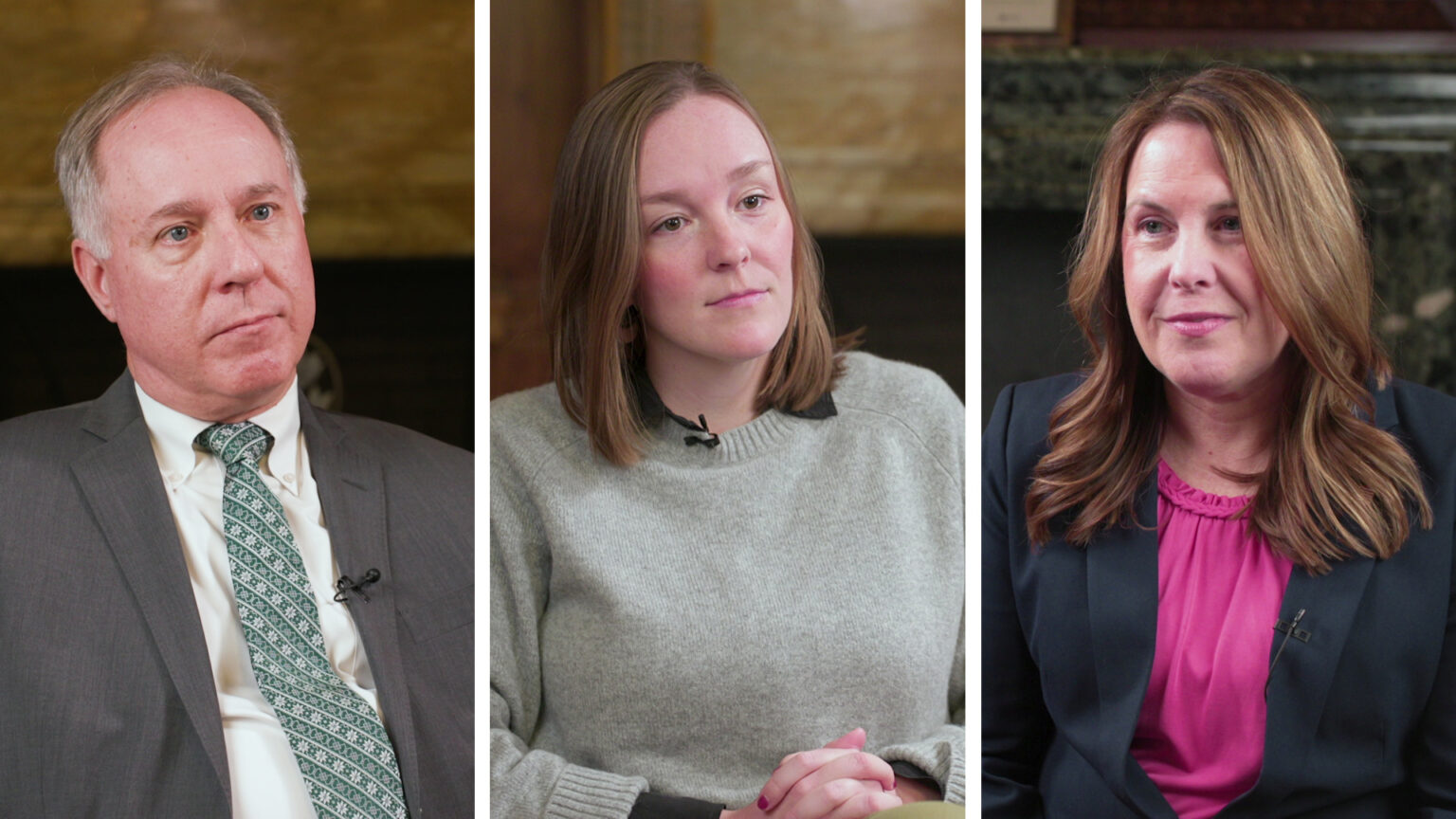
Wisconsin Assembly Speaker Robin Vos, Wisconsin Assembly Minority Leader Greta Neubauer and Wisconsin Senate Minority Leader Dianne Hesselbein (Credit: PBS Wisconsin)
As the year drew to a close, Here & Now interviewed three of the four top leaders in the Wisconsin Legislature: Speaker Robin Vos, R-Rochester, Assembly Minority Leader Greta Neubauer, D-Racine, and Senate Minority Leader Dianne Hesselbein, D-Middleton. Senate Majority Leader Devin LeMahieu, R-Oostburg, did not respond to requests for an interview. The three lawmakers discussed actions by and accomplishments of the Legislature over the course of 2024, as well as their expectations for the upcoming process to craft a 2025-27 state budget and other legislative priorities over the coming year.
- Gov. Tony Evers, a Democrat, is scheduled to give his State of the Budget address on Tuesday, Feb. 18, during which he will present his biennial state budget proposal to both chambers of the Wisconsin Legislature. The Assembly and Senate are controlled by Republican majorities, though, and they will be creating their own version of the budget through the Joint Finance Committee. Following passage in both chambers, this legislation will then go on to Evers for approval, rejection, or as is typically the case under governors of both parties, approval with a host of partial vetoes. Vos spoke to the state’s estimated $4,600,000,000 budget surplus and how Republicans plan to factor it into their budget plan.
- Vos: “So the reason that we have the surplus, more than half of it is literally the fact that tax cuts got vetoed and that money is now sitting in Wisconsin’s treasury. We’re not going to spend that on a growing government. So what we’re going to do is we’re going to pass our tax cuts first. We’re going to actually find out how much money we have left over. And then that’s what we’re going to invest in government. We’re not going to do it in reverse where we spend on all the things that he wants, and then we don’t get the tax reductions that Wisconsinites deserve.
- In another portion of the interview, Vos spoke to multiple cases that have been or are expected to come before the Wisconsin Supreme Court, including one case on a partial veto by Evers in 2023 that extended K-12 education funding in the state over 400 years.
- Vos: “So, hopefully, if they strike down as unconstitutional his line-item veto, we’ll have a discussion about how to fund schools and it’ll be just like the normal process. If for some reason they say that that 400-year appropriation is done, well, schools are mostly off the table, then we’ll have to focus on the rest of the budget. So hopefully not.”
State Rep. Greta Neubauer
D-Racine
- At the beginning of the year, Gov. Tony Evers signed into law new district maps for the state Legislature, which had been passed in both Republican-controlled chambers in the wake of a Wisconsin Supreme Court ruling that threw out the existing maps as unconstitutional. Those maps had long been recognized as gerrymandered in favor of Republicans, and overturning them was a major priority among Democrats following the 2011 and 2021 redistricting cycles. In the November 2024 election, under the new maps, Republicans retained a majority in both chambers of the Legislature, but Democratic candidates flipped 10 seats in the Assembly. Neubauer, who was elected by other Assembly Democrats as their minority leader for a second time, discussed her expectations about the political impacts of redistricting.
- Neubauer: “It was near impossible for Democrats in the Assembly and Senate to get a majority under the old maps, despite often getting about 50% of the vote, right? Sometimes over, sometimes a little under. And so now when we get 50% of the vote, right, that should yield close to 50% of the seats. And that’s a very good thing. We really did not have a functioning democracy here when it came to the state Legislature. And so now we’ve got a number of members who are going to be serving in this body in the upcoming year, who are on the red side and the blue side, who are in very close seats, and they’re going to be looking over both shoulders, right. And they’re going to know that they’ve got an election in two years, and voters are going to expect them to deliver. “
- In another portion of the interview, Neubauer spoke to the spring 2025 election for an open seat on the Wisconsin Supreme Court. The ideological balance of the court flipped to a liberal majority following the spring 2023 election after a decade-and-a-half under conservative control. Two years later, control of the court is up in the air once again, and Neubauer spoke to the stance among Democrats toward this election.
- Neubauer: “Our democracy gained a lot when we got fair maps here in Wisconsin, and that is thanks to a fair and impartial court. So we are gonna be very engaged in this election. We know that it’s essential for our constituents’ well-being, for their rights and freedoms, particularly under a Trump administration.”
State Sen. Dianne Hesselbein
D-Middleton
- In the 2022 fall election, Republicans achieved a supermajority in the Wisconsin Senate. In the 2024 fall election, Democrats flipped four seats in the state Senate under the new district maps, which along with the party’s 10 pickups in the Assembly moves both chambers closer to parity and sets up a potential race for control in the 2026 election cycle. The priority for state lawmakers in the first half of 2025, though, is writing the next biennial budget, and Hesselbein spoke to hopes in the Democratic caucus that they can play more of a role in the process.
- Hesselbein: “So we’re now no longer in the super minority, right? The Republicans no longer have a supermajority in the Senate. And with 18 Republicans and 15 Democrats, I’m really hoping that we can work in a bipartisan fashion the entire way through the state budget. So maybe for the first time since I was first elected in 2012, maybe I can get to a yes to a vote for a budget would be really exciting. I think the Republicans are going to need our votes to get through. And certainly I have an open-door policy to try to make that happen.”
- In another portion of the interview, Hesselbein likewise spoke to the spring 2025 election for an open seat on the Wisconsin Supreme Court. The race for the high court has two declared candidates, each of whom has distinct partisan affiliations. Susan Crawford is a Dane County Circuit Court judge who served in the state Department of Justice under Democratic Gov. Jim Doyle in the 2000s, and is seen as the liberal candidate. Brad Schimel is a Waukesha County Circuit Court judge who was elected as a Republican to the office of Wisconsin Attorney General in 2014 and served one term in that office. Hesselbein spoke to this election, which will be held on April 1.
- Hesselbein: “Everything’s on the line in April and everybody needs to show up, because I think you’re voting for who you see moving Wisconsin forward in the direction that you want, and I think it’s a clear, clear choice.”
Watch new episodes of Here & Now at 7:30 p.m. on Fridays.
 Passport
Passport




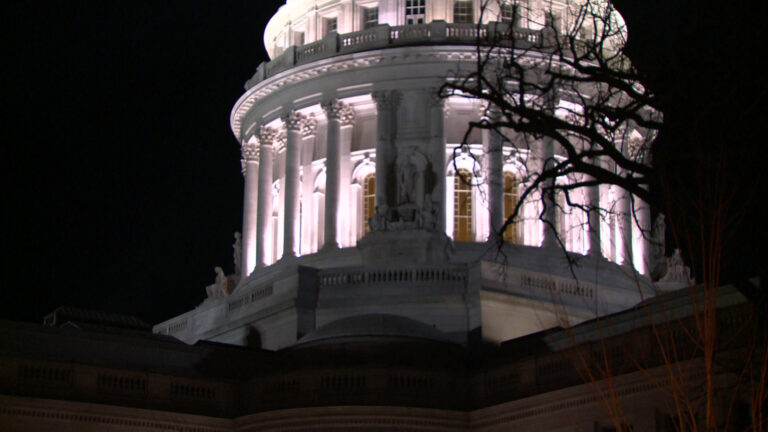
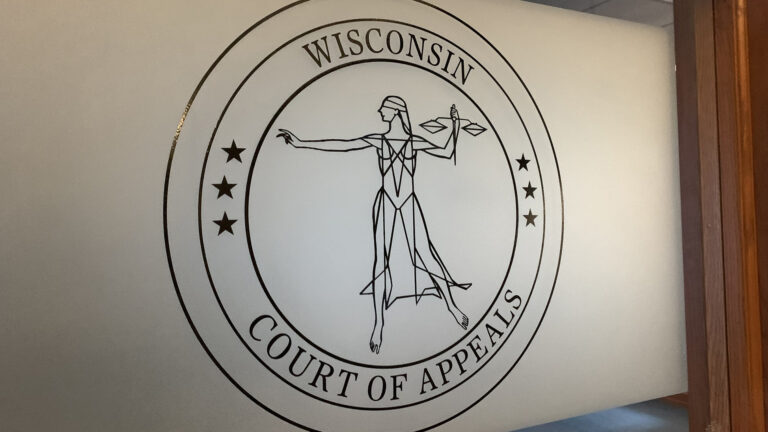
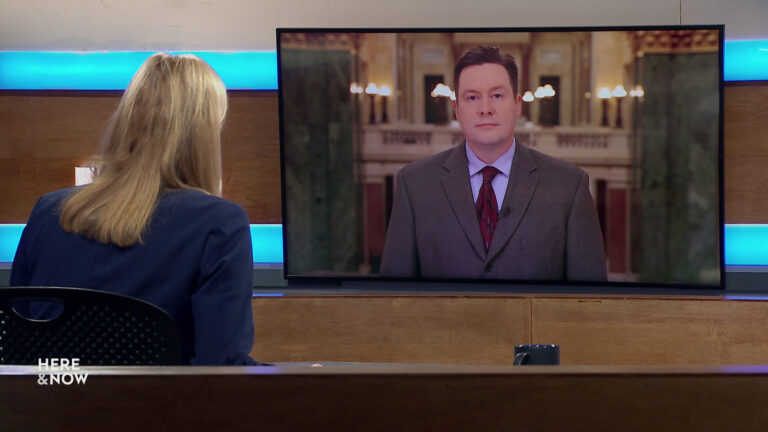
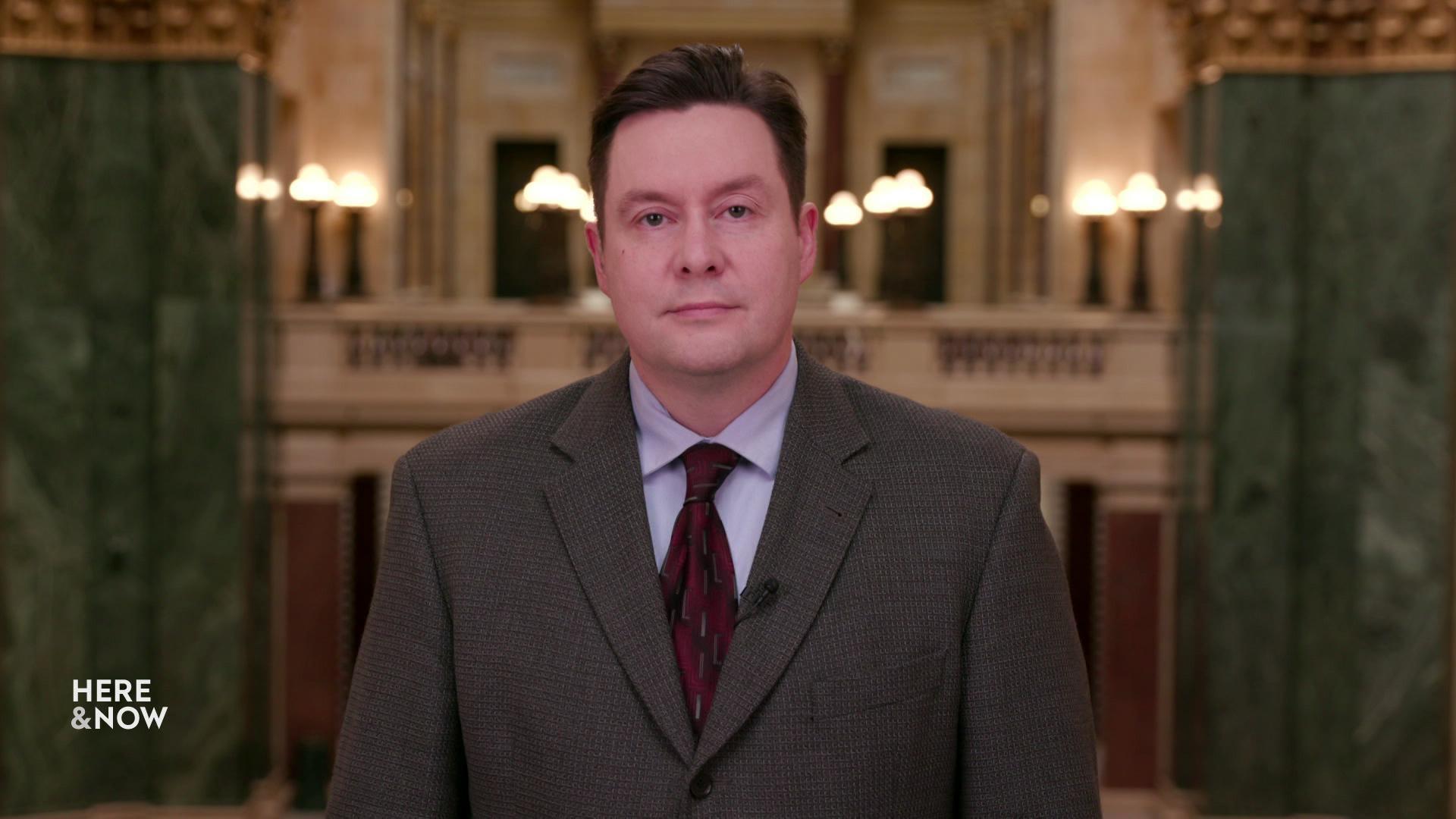
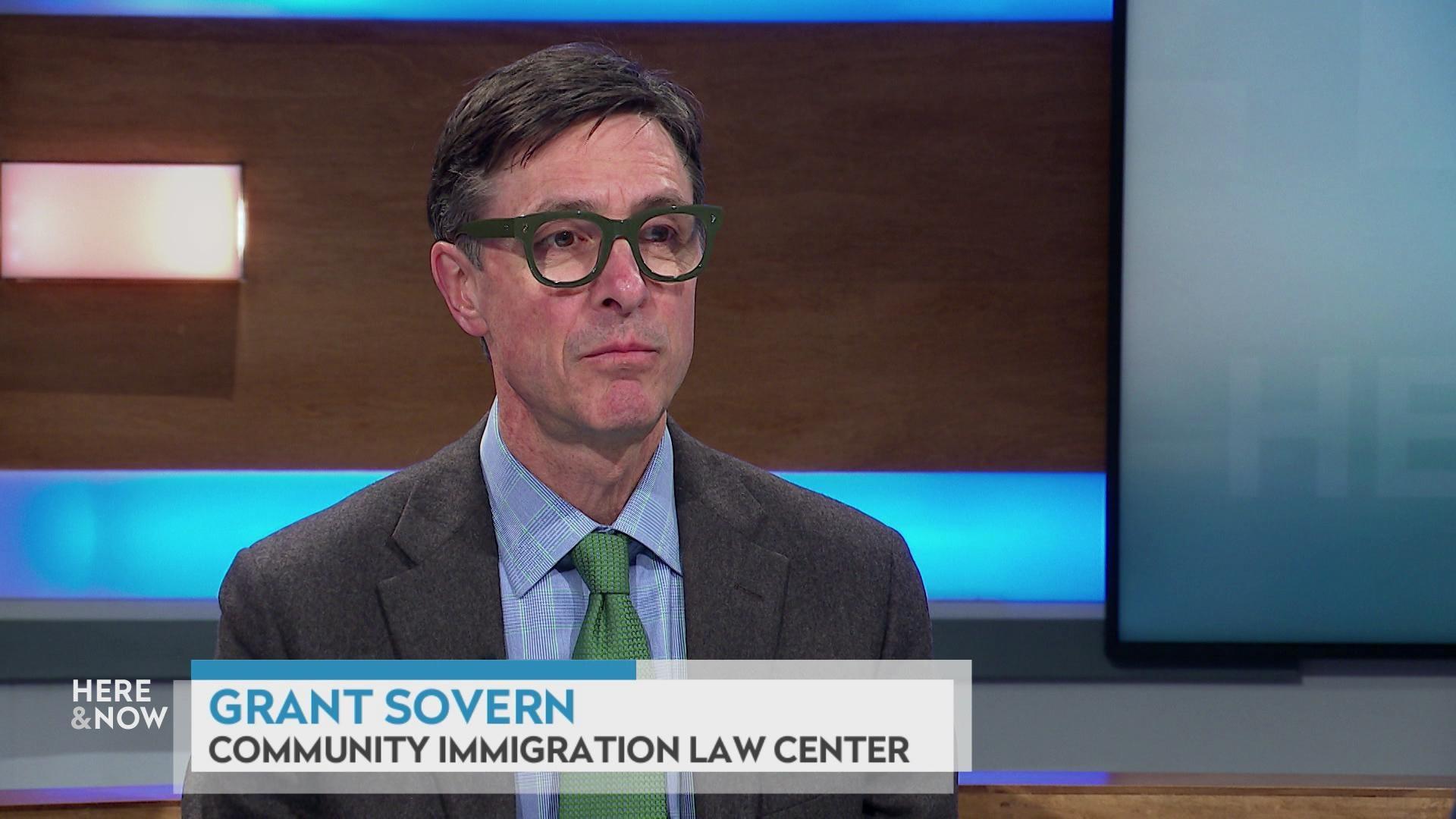
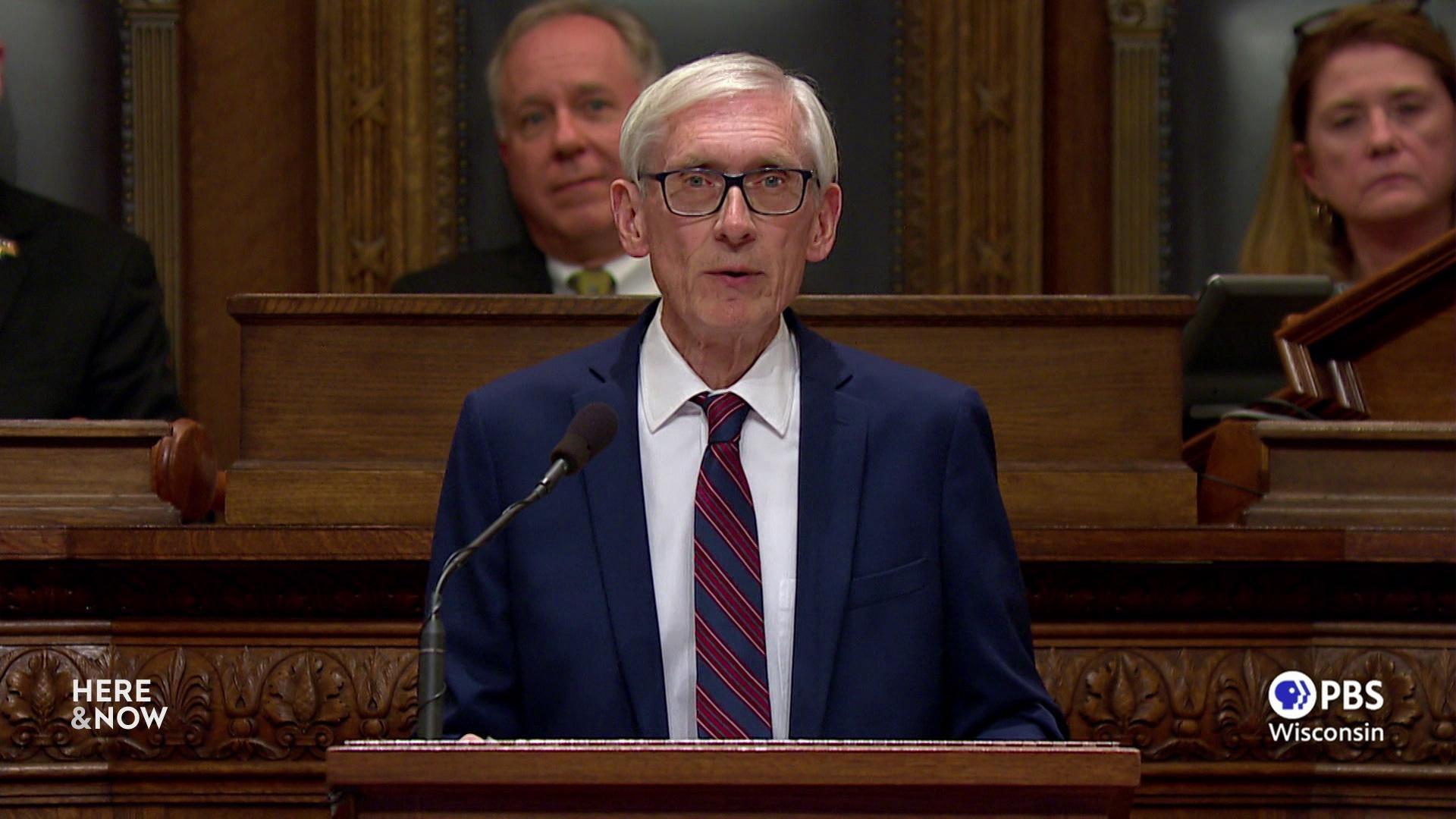

Follow Us